Carnivorous Nepenthes Pitcher Gaya 8cm pot
£19.00
Out of stock
New!
Choose your delivery date at checkout
*orders with houseplants will be sent on the next available shipping date.
Carnivorous plants definitely fall into the category of weird, wonderful and downright fascinating. Mesmerising houseplant owners of all ages with their striking appearances and fascinating adaptations to capture and feed on insects and small creatures. It is no wonder they have held their popularity for decades.
Nepenthes Pitcher Gaya, commonly known as a Monkey Jar plant is a natural fungus gnat killer! If you have an issue with this pest this plant is for you. Perfect, natural alternative to yellow sticky traps for flies including fungus gnats!
Pictures represent our actual stock. The number of pitchers varies but plants constantly pushing new!
The best place to start with carnivorous plants is by understanding their natural habitat and how their environment has led them to form such unique adaptations. Carnivorous plants have been on the planet for a long time, around forty million years and have been found on almost every continent and tropical island with Antarctica being the only exception.
Carnivorous plants are typically found in areas that are high in natural light and moisture, as well as water-logged areas like swamps where the nutrients in the soil are virtually non-existent. Many of their strange adaptations have been formed from this lack of nutrients.
All plants need basic nutrients to survive and without them, they don’t stand much of a chance.
Nitrogen and phosphorus are two of the most important nutrients plants need, nitrogen is the main component in chlorophyll which plants use for photosynthesis. The other is phosphorus, which is needed to make this process possible. Plants use phosphorus to take in, store and convert the sun’s rays. Without it, they would be unable to use the sun’s energy to create the biomolecules (proteins, amino acids, DNA) they need to grow and reproduce.
Carnivorous plants have adapted over millions of years to get these essential nutrients from their environment. Unable to get these nutrients from the soil they have formed traps to capture insects and small creatures that are rich in the nutrients they lack.
There are approximately 600 different species that fall into the Carnivorous plant category. These different species have found ways of attracting, trapping, killing, and absorbing their prey purely to extract the nutrients they need for survival.
Most carnivorous plants will use bright colours, distinctive smells, and sticky surfaces to attract insects but there are some key mechanisms that make up the variations of carnivorous plants and most species can be spread across these different hunting strategies
- Snap traps use rapid leaf movement to snap shut and capture their prey.
- Bladder traps suck in their prey with a small internal vacuum.
- Pitfall traps entice prey into a small rolled-up leaf with digestive enzymes.
- Flypaper traps utilize sticky mucus to trap their prey.
- Eel traps use inward-facing hairs to force their prey towards the digestive organ.
Click here to check our care instructions to find out how to look after your carnivorous plant.
Would you like to learn about carnivorous plants? Check our article here.
Pet Friendly
- How often should I water my Nepenthes Pitcher Gaya?
- Water regularly to keep the soil consistently moist, but avoid waterlogging. Carnivorous plants like this one prefer high humidity and moist conditions reminiscent of their natural swamp habitats.
- Can the Nepenthes Pitcher Gaya thrive in indoor environments?
- Yes, it’s well-suited for indoor environments with plenty of bright, indirect sunlight. Ensure it’s placed in a spot that mimics the light and moisture levels of a tropical environment for optimal growth.
- Is the Nepenthes Pitcher Gaya safe to keep around pets?
- Absolutely! This plant is pet-friendly, posing no harm to cats or dogs if they come into contact with it, making it a fantastic choice for pet owners looking for safe, natural insect control solutions.
☀️ Light
☀️☀️▫️ (Medium)
The Nepenthes Pitcher Gaya thrives in bright, indirect sunlight. Avoid direct sunlight as it may scorch the leaves and pitchers. A spot near a window that receives filtered light is ideal for encouraging healthy growth.
💧 Water
💧💧💧 (High)
This plant loves moisture! Keep the soil consistently damp but not waterlogged. Use rainwater or distilled water to avoid mineral build-up that can harm the plant. Ensure the pot has good drainage to prevent root rot.
🌡️ Temperature
🌡️🌡️🌡️ (Warm)
Nepenthes Pitcher Gaya prefers a warm environment, ideally between 20°C and 30°C. Protect it from sudden temperature drops and cold drafts which can stress the plant.
💦 Humidity
💦💦💦 (High)
High humidity is crucial for your Pitcher Plant, so aim for 60% or higher. This mimics their natural humid habitat. Using a humidity tray or placing a humidifier nearby can help maintain these levels.
🪴 Repotting
Repot every two years to refresh the soil and provide room for growth. Use a well-draining, acidic soil mix specifically designed for carnivorous plants to ensure optimal health.
🐾 Pet Friendliness
This plant is pet-friendly! No worries if your furry friends get a little curious, as it’s safe from any toxic effects.
✅🪴 Recommended Locations at Home
Consider placing your Nepenthes Pitcher Gaya in high-traffic areas like the living room or kitchen where it can catch more insects. Just make sure it’s a spot with plenty of indirect sunlight and away from drafts.
✨ Other Plant Features
Aside from being a natural pest controller, especially against fungus gnats, the Nepenthes Pitcher Gaya adds an exotic flair to any space with its unique and striking appearance.
If you have more questions, feel free to ask our Mossbot or contact us via our website. Remember, we also offer a free plant hospital service if your plant pals feel under the weather!
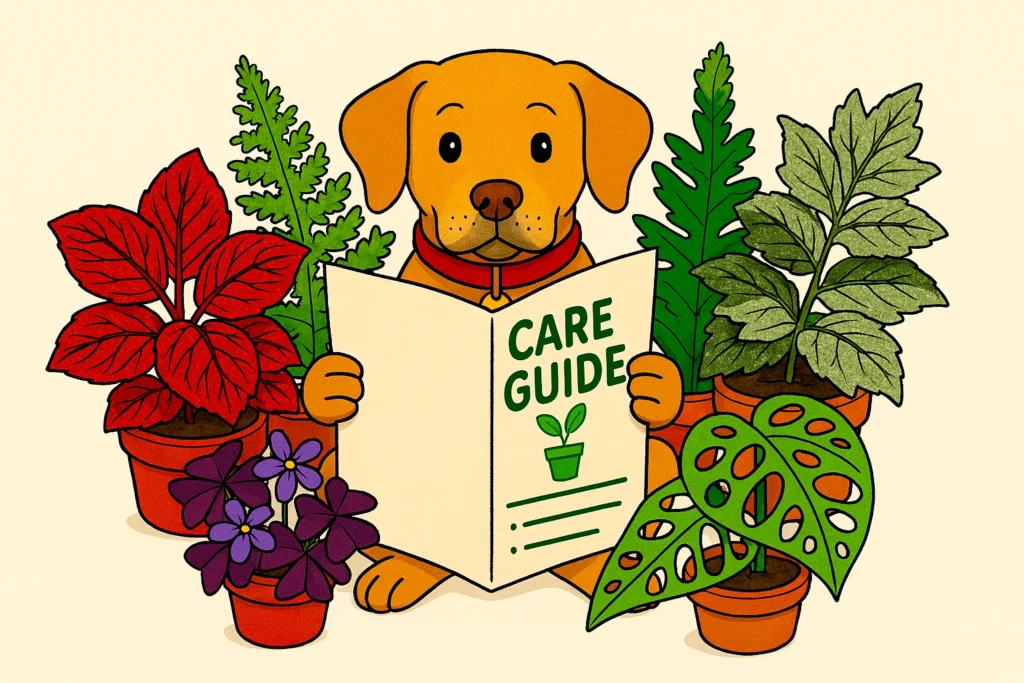
Free Care Guide With Every Purchase
Scan the plant pot QR for instant access to our care guide for your plant. No hassle, no stress, just healthy and happy plants.
1 review for Carnivorous Nepenthes Pitcher Gaya 8cm pot
| 5 star | 100% | |
| 4 star | 0% | |
| 3 star | 0% | |
| 2 star | 0% | |
| 1 star | 0% |
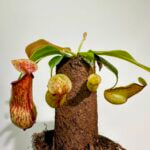 Carnivorous Nepenthes Pitcher Gaya 8cm pot
Carnivorous Nepenthes Pitcher Gaya 8cm pot
We’re a small family business with a big love for plants.
From our base in Aberdeen, we pack every order with care and love. Our small size means we can be flexible with special requests, and we’re always happy to help. We reuse packaging, craft our own eco-friendly products, and offer friendly advice whenever you need it.
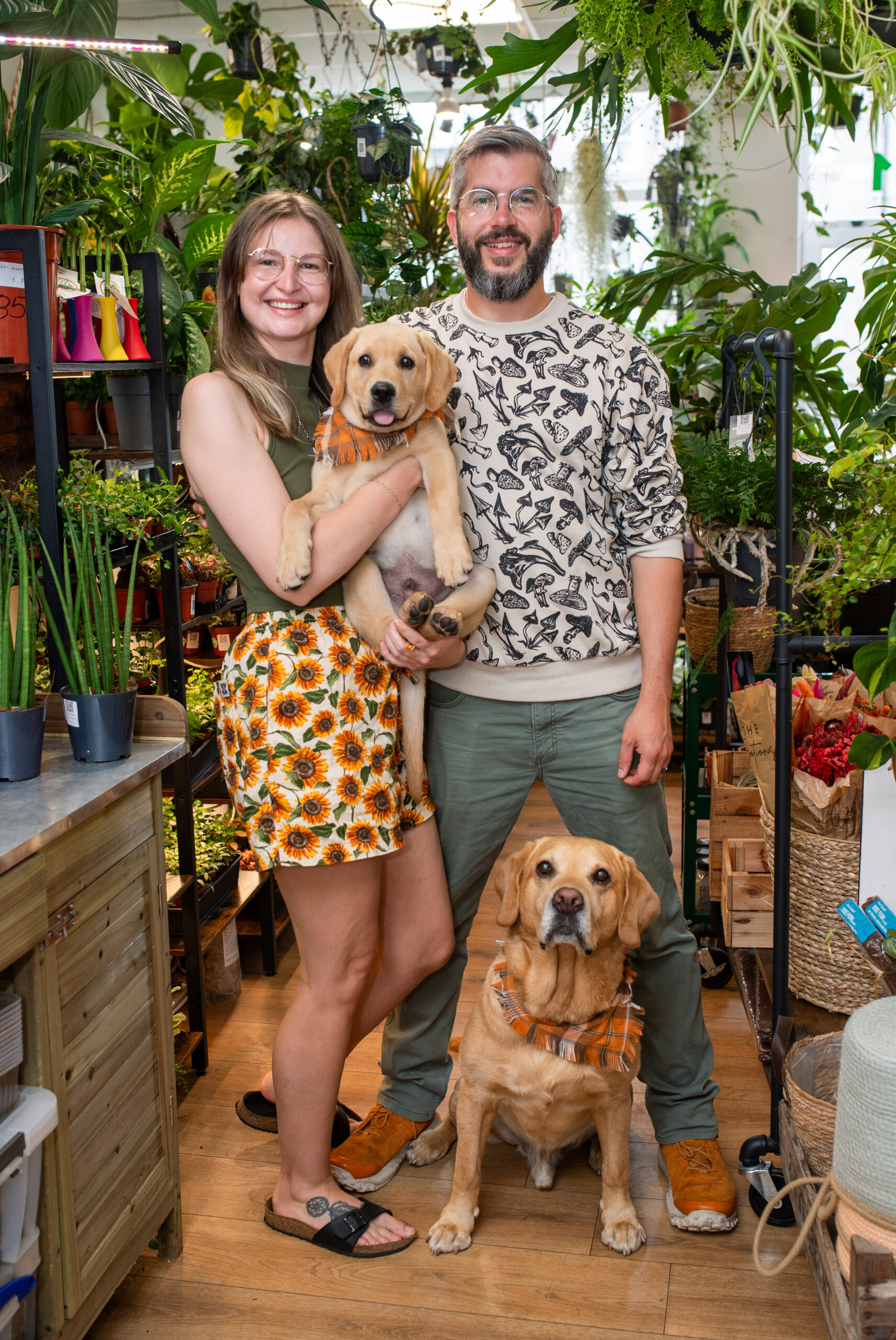







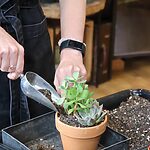

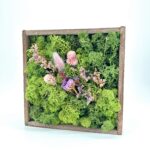

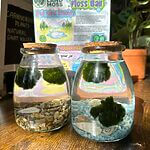
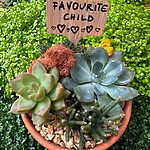
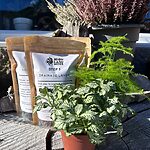


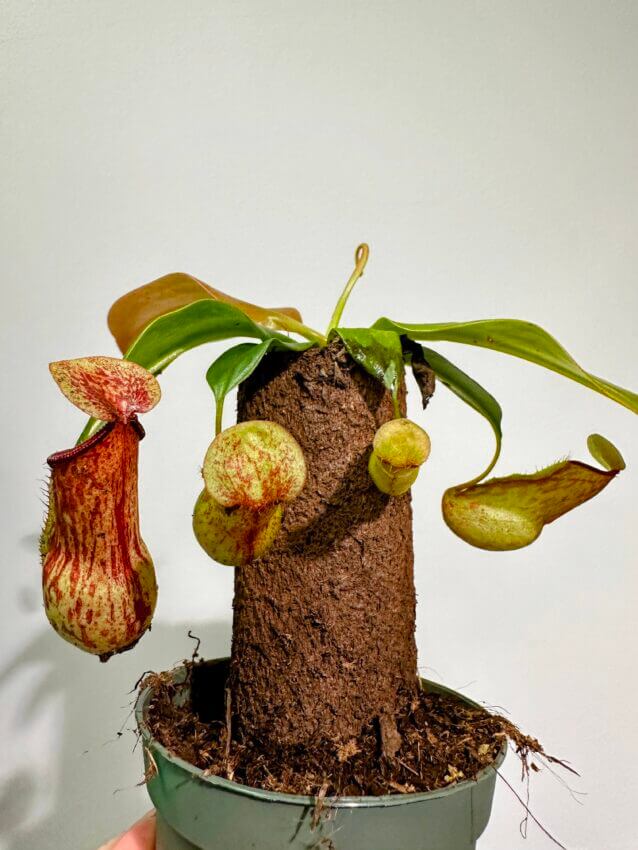
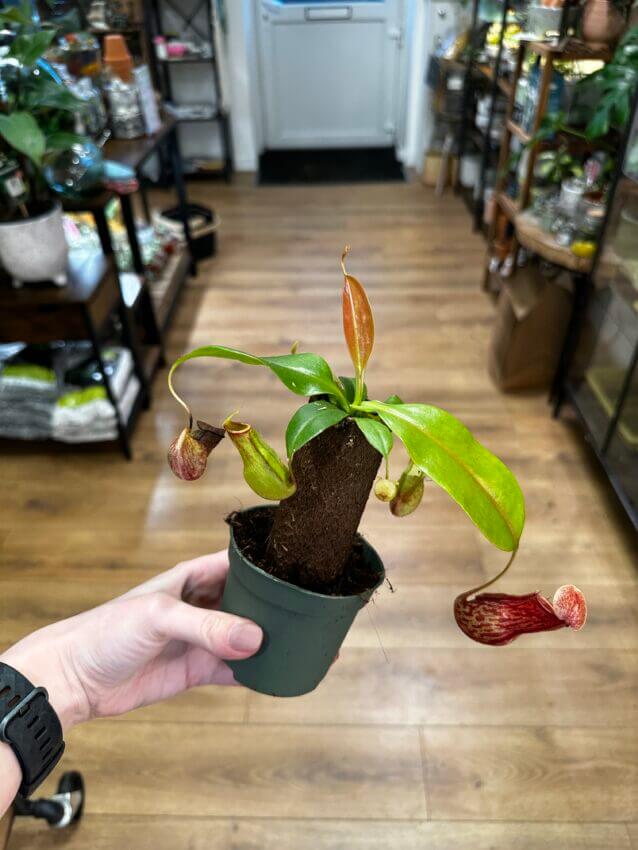

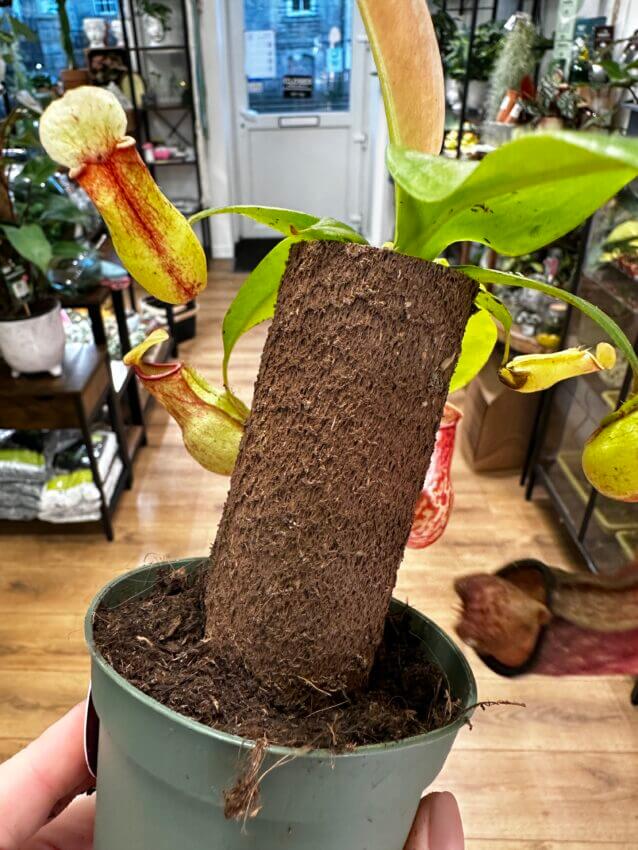
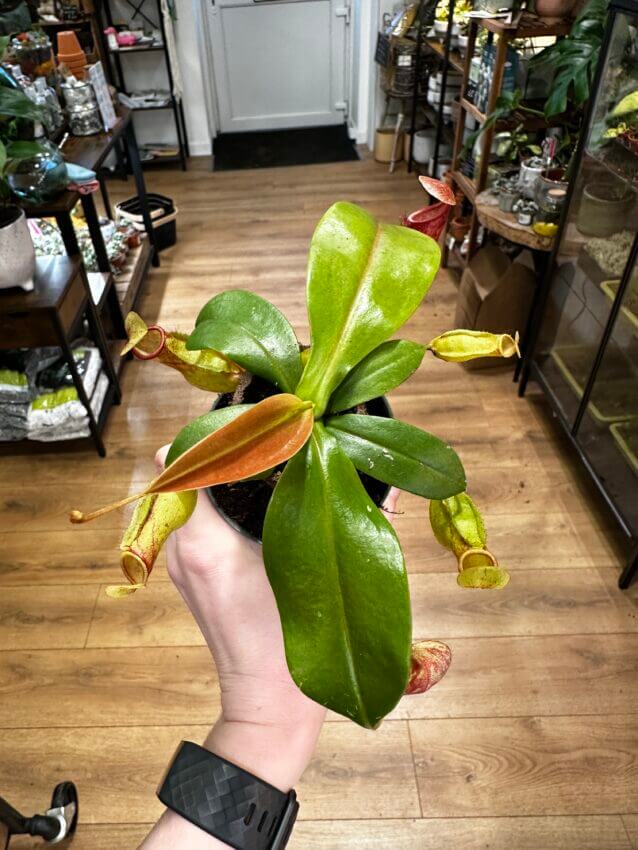
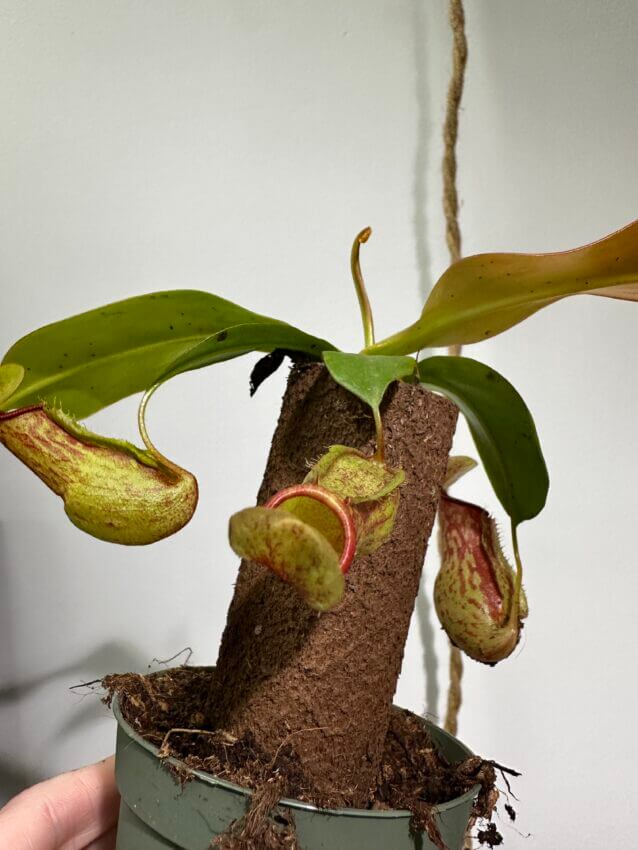
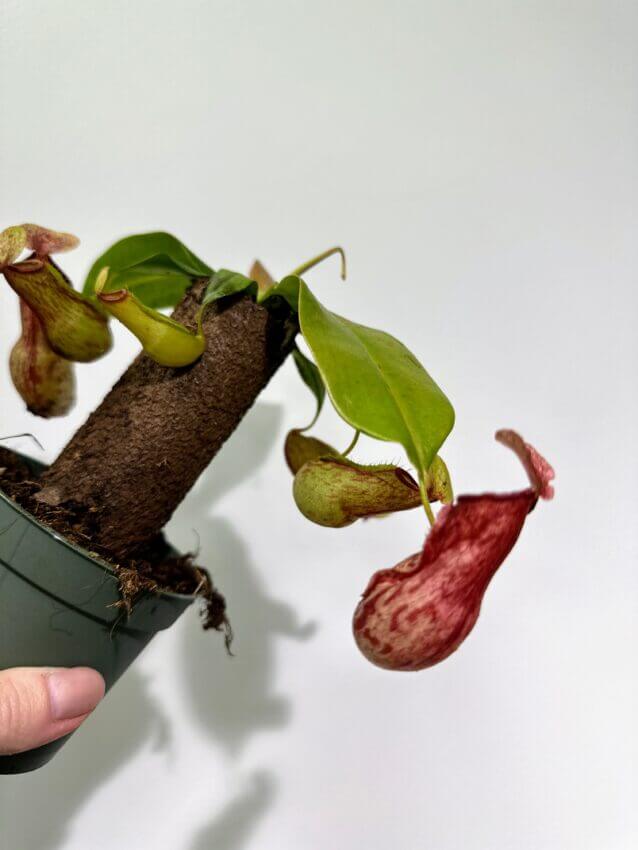

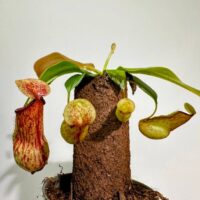
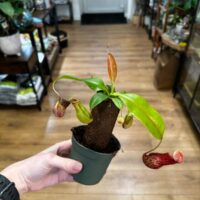
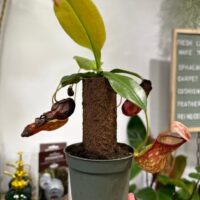
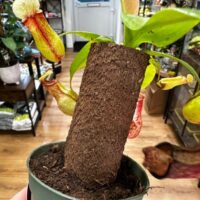
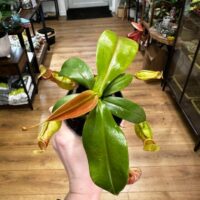
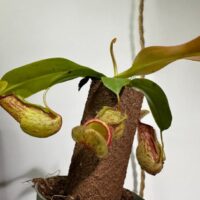
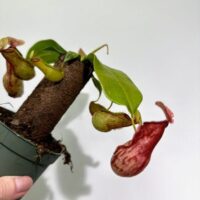
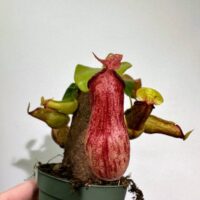
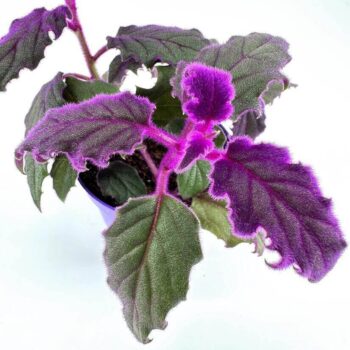
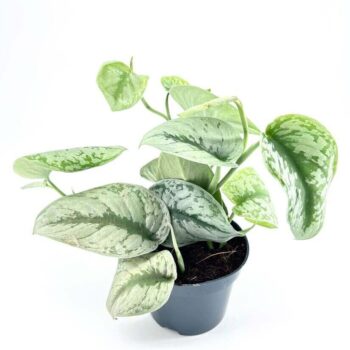

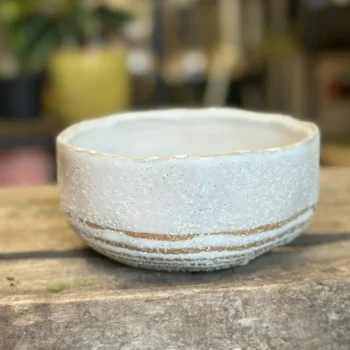
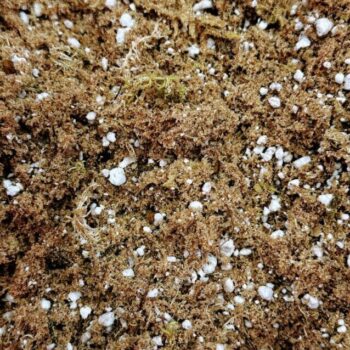

Lovely smaller form pitcher – exactly as highlighted in the image.